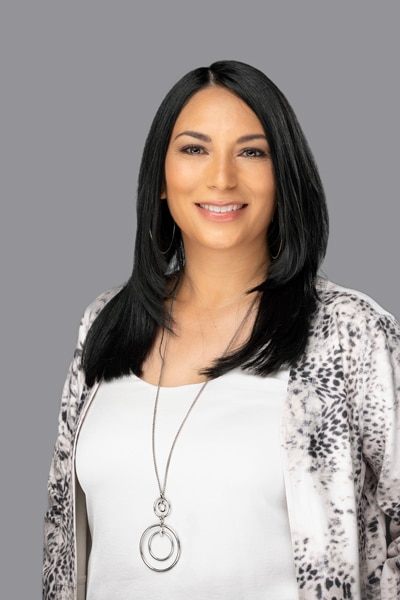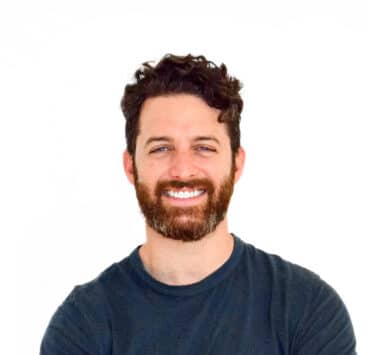As the senior director of global talent development, diversity, and inclusion at Atara Biotherapeutics, Maribel Hines has made it her mission to not just create a diverse workforce but to foster a more diverse and inclusive work environment.
Atara Biotherapeutics is a leading resource in developing treatments for people with cancer, autoimmune, and viral diseases. Though its website states that it seeks “to transform the lives of patients with serious diseases through pioneering science, teamwork, and a commitment to excellence,” Atara is focused on transforming employee’s lives, too—with some help from Hines and her people team.
For Hines, diversity goes beyond the categories of race, gender, and ethnicity. She acknowledges that these are important as a basis, but they are not an endpoint for D&I.
Looking beyond these dimensions and also focusing on neurodiversity, sexual orientation, physical ability, and socio-economic backgrounds helps organizations like Atara build a diverse workforce and foster a more inclusive culture. Appreciating and drawing on each unique experience helps the organization not only hire great talent but also create an environment where everyone thrives.
“We’re in a space where we need to innovate in service of our mission,” Hines says. “Diversity and inclusion are foundational steps in our journey, and they can’t be rushed just to check a box.”
To meet changing metrics of diversity, Atara has implemented robust programming aimed at bolstering a more varied and inclusive workforce and environment through educational, developmental, and conversational mediums. According to Hines, Atarians (as employees are affectionately dubbed) have several choices when it comes to being part of the company’s diversity and inclusion framework.
For one, they can participate in an educational series aimed at “fostering inclusion, awakening unconscious bias, leveraging cognitive diversity, and scaling belonging” across all levels of the organization, from staff to senior leadership. Employees can also attend fireside chats that center on a specific theme. In honor of Pride month, for example, the theme of the chat in June was “Pride in the LGBTQIA+ Experience.”
For the talk, Hines enlisted a transgender moderator in addition to four panelists who identified as allies, advocates, and members of the LGBTQIA+ community. The goal of the event was to support a welcoming atmosphere, build connection, increase understanding and acceptance, and open the door for employees to be able to share their own stories.
This chat was the second of four that Atara plans to have in 2021. For the final two, the people team is collaborating with Atarians to choose topics of interest, which can range from gender to allyship and beyond.
“A high-performing team knows how to enable the people around them to cultivate the culture and drive the change.”
In addition to placing an emphasis on more diverse hiring and inclusive internal resources by organizing programs like these fireside chats and the educational series, Atara has committed to remaining an all-inclusive company for years to come.
Hines states that Atara is being “thoughtful and planful” when it comes to its D&I strategy and acknowledges that doing so can translate to a high-performing team that is in service of Atara’s mission of transforming patients’ lives through pioneering science, teamwork, and a commitment to excellence.
The company’s initiatives are centered on building trust and enabling collaboration, which is one of the organization’s TRAIT values: transparency, respect, accountability, integrity, and trust.
To Hines, an effective workforce at Atara would embody these core values by modeling them in words and action. “A high-performing team knows how to enable the people around them to cultivate the culture and drive the change,” she says. “I want to look back and see that the initiatives, programs, and tools I provided help to attract, develop, and retain great talent.”
According to Hines, Atara welcomes employee feedback and engagement. It surveys employees and actively draws on “culture champions” to provide progress updates and help the organization drive the culture forward. In other words, they implement suggestions from employees who are passionate about contributing to a diverse, inclusive, and engaging work environment.
“Atara is focused on making sure people understand that inclusion is intentional,” Hines says, adding that bolstering team dynamics and psychological safety contributes to how people feel about going to work.

During the COVID-19 pandemic, psychological and physical safety were at the forefront of the company’s strategy. Hines, having joined Atara the week of lockdown in March 2020, was thrown into the thick of this fast-acting strategy as both a leader and an employee. Luckily, the company took great strides to make sure employees felt safe and cared for, especially essential workers.
Hines notes that Atara took a “people-first approach that was focused on safety through risk reduction.” This risk reduction included creating remote work practices for employees who could stay home and implementing safety precautions for those who could not, based on role responsibilities.
Additionally, the organization took measures to ensure employee wellness, with more than 110 virtual engagement opportunities, including guided mediation, chair yoga, webinars, happy hours, virtual cooking lessons, and an online art-focused workshop called “ARTara.” They also hosted lunches for essential staff and implemented recharge and meeting-free days to enable personnel recharge and renewal and allow focused time to get meaningful work done.
All of these efforts went toward making staff feel safe when the world endured such uncertainty. More so, to Hines, these efforts emphasized Atara’s culture, which she describes as “learning agile, diverse, and inclusive.”
Supporting a culture like this is also what Hines tries to accomplish through her volunteer work outside Atara. “I am very purposeful about how I volunteer,” she says. And it’s no understatement: Hines splits her free time three ways to serve as a mentor for several other organizations.
First, she is on the advisory board of the University of Southern California—her alma mater—where, as a member, she provides advice, support, and feedback to university students about their careers and other topics. She is also a member of the Latino Alumni Association, where she mentors college freshmen.
Additionally, Hines works with Chrysalis, a nonprofit organization that focuses on creating a pathway to self-sufficiency for people in the homeless community and low-income individuals through resources and support. With this organization, Hines provides feedback and grants mock interviews to help people who may have barriers in their job search.
“These are people who are serious about finding full-time employment but have experienced a significant setback either through incarceration, substance abuse, or sheer bad luck,” she says. “[Finding a job] can be challenging for these populations, and I want to help them.”
Inside and outside Atara, Hines strives to set everyone up for success and help ensure that they feel valued. Her volunteering and professional duties work hand in hand to ensure that others are given a fair shake. More so, her work emphasizes that a person’s success is not determined by their circumstances and instead proves that someone’s uniqueness can be used to their advantage.


